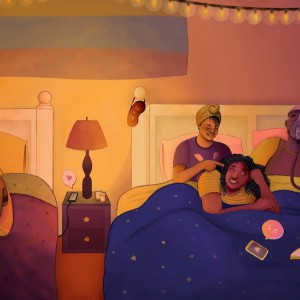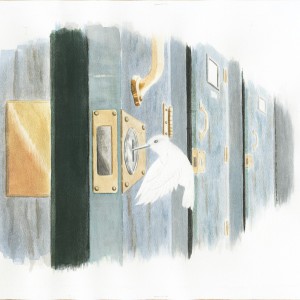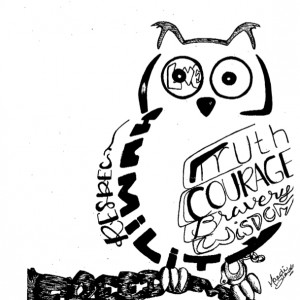-
_300_300_90_s_c1.jpg) Magazine
MagazineDisability and the prison system
It’s not a coincidence that so many prisoners are disabled – the system was designed that way.
-
 Magazine
MagazineWho is a prisoner?
From psychiatric facilities to youth detention centres, the prison keeps growing. To abolish prisons, organizers first need to map the system.
-
 Magazine
MagazineWhat is disability justice?
Members of the Disability Justice Network of Ontario’s Youth Action Council discuss the present and future of the disability justice movement.
-
 Online-only
Online-onlyWhen sex workers go missing, who responds?
In 2017, Alloura Wells went missing. When police refused to file a missing persons report, sex workers stepped up to search for their friend. This is the story of the search for Alloura, and sex workers’ calls to abolish the police.
-
 Magazine
MagazineFuturity and systems change reading list
Future worlds and survival in a changing present gripped by the Anthropocene are on everyone’s minds, and now is the time to dream and lean into what’s coming.
-
 Magazine
MagazineLooking for change after Black Lives Matter
Nearly two years after the summer of 2020, donations and public support for Black police abolitionists on the Prairies have dried up. Meanwhile, police budgets keep growing.
-
 Online-only
Online-onlyAbolish long-term care
We don’t need to confine elderly and disabled people to deadly and dehumanizing institutions. What if they lived in the community and received at-home care from a support worker?
-
 Online-only
Online-onlyThe dark side of prison food service
In Ohio, where Aramark is contracted to provide food to state prisons, the corporation seems more interested in profit than the safety and health of prisoners.
-
 Sask Dispatch
Sask DispatchWhen Board Meetings Are Not Enough: A Poem for Abolition
At a recent city council meeting where Saskatoon approved millions more in funding for the Saskatoon Police Service, Erica Violet Lee was the only one who spoke against the increase. Rather than trying to convince those whose minds had already been made, she read a poem she had written in honour of Neil Stonechild, Kimberly Squirrel, and all the others whose lives have been stolen by colonial and carceral violence in Saskatoon.
-
 Online-only
Online-onlyFrom the plantation to the prison
Ohio’s reliance on for-profit prisons shows that slavery has never ended in America. Prisons have always been about herding, investing in, and marketing chattel for a profit.
-
 Magazine
MagazineWhat does freedom feel like?
In unnaturally small prison cells, it’s common for prisoners’ eyesight to degrade due to a lack of stimulation, distance, and depth. It begs the question: which other senses does confinement diminish? To what degree? Do they come back?
-
 Magazine
MagazineOne less prison to be torn down
How prisoners helped stop the construction of a new prison camp in Kentucky
-
 Magazine
MagazineCosmetic change is not prison reform
“Prison reform” is an empty promise from politicians and corrections departments who have a vested interest in maintaining the status quo.
-
 Magazine
MagazineHealed people heal people
In a world without prisons, we could break the vicious cycle of generational poverty, trauma, and incarceration.
-
 Magazine
MagazineCOVID and sexism in a women’s prison
Women have struggled to get what little we have in prison – but the COVID pandemic has stripped even that away.
-
 Magazine
MagazineAbuse of authority
Correctional officers don’t help “correct” prisoners – most of them simply create an environment that’s toxic for both prisoners and other staff.
-
 Magazine
MagazineGuilty until proven innocent
Living on remand, it’s important to know how to fight for your rights when the justice system breaks its own rules.
-

-
 Magazine
MagazineTwo poems from prison
No bullet, no sword, nor anything formed, / nothing short of a category 4 storm, / Could ever kill an Indian that’s immortal
-
 Magazine
MagazineDeath by a thousand cuts: Aging in Canadian prisons
Elderly prisoners need health care, not incarceration.



